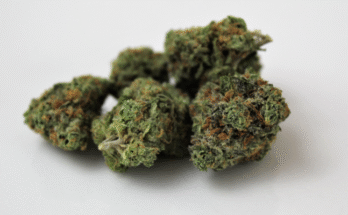As the cannabis legalisation bandwagon hurtles ahead, there is already some interesting consolidation going on in the cannabis seed market.
And these business deals are allowing previously semi-legal seed companies the opportunity to become ‘legal’ and distribute their genetics across the global legal cannabis marketplace.
Consolidation
According to High Times, Canadian company Canopy have acquired seed companies Greenhouse Seeds as well as the renowned DNA Genetics, although some websites report the DNA/Canopy relationship as a partnership.
Canopy has also acquired the well established Canadian seed bank ‘House of the Great Gardener’.
In this nicely put together video below, staff from DNA (as well as some other cannabis personalities) can be seen loading clones onto a plane from the Netherlands going to Canada and Colombia – where a world register of cannabis genetics is now underway.
Some DNA genetics strains, such as their fabled Lemon Skunk, are already available to Canadian customers in the form of bud or oil.
But while seed banks can now operate legally in countries like Canada and Jamaica, there is little to help companies enter the legal medical markets in other countries.
Passports for cannabis seeds
Over in Colombia, however, genetics are being officially legalised. They have a plant certification system that is currently unique in the world and provides unique phytosanitary certificates for cannabis seeds.
This certificate can then act as passport for the seed, allowing it to be legally sent from country to country.

According to Javier Garcia, the director of Global Agronomical Procedures for a licensed producer in Colombia:
“All companies wishing to produce medical cannabis must be approved by three ministries: Justice, Agriculture and Health. Each of them gives its own approval to initiate cannabis production.
“The Ministry of Agriculture, through the National Plant Protection Organization (NPPO), requires cannabis companies to demonstrate their know-how and test their genetics through biological experimentation and technical information, before they are allowed to produce commercially their cannabis crops.
“Once they comply with these requirements, cannabis companies can mass produce and commercialize their seeds to the local market and they are able to apply for the phytosanitary certification, as the legal document accepted for trading negotiations among countries.”
The World’s seed bank
So Colombia may be in the enviable position of becoming the official legal cannabis seed bank repository of the world. And it helps that Columbia’s standards in agriculture are reputed to be some of the strictest on the planet.

Any seeds (not just cannabis seeds) currently exported by Columbia must use the phytosanitary certificate, making Columbia the preferred seed supplier for many varieties of flower and plants to countries around the world.
The phytosanitary system for seeds requires that a batch of the seeds are grown and their characteristics measured and recorded carefully before they are allowed to officially register the genetics.
Landrace strains preserved
Old timers will be over the moon to hear that many famous Columbian landrace strains will be included in this catalogue, including the much loved Punto Rojo and Mango Viche.
Cannabis seed producers around the world will be paying very close attention to this new development, which could have huge implications for the global seed market.
Anybody who can have their seeds officially listed in this system will no doubt reap huge financial rewards by gaining access to a blossoming global legal cannabis market.




